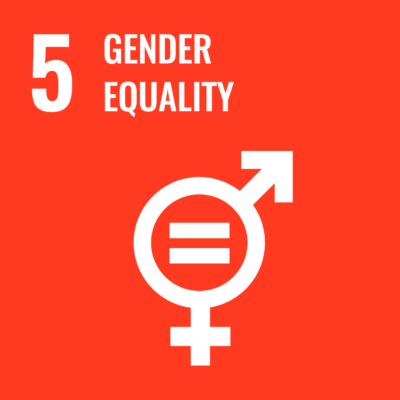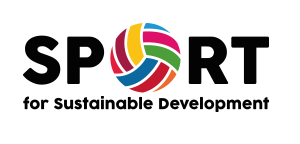
GLOBAL INTRODUCTION OF THE GOAL WITH SOME STATISTICS
Gender equality is a human right. Women are entitled to live with dignity and with freedom from want and from fear. Gender equality is also a precondition for advancing development and reducing poverty: Empowered women contribute to the health and productivity of whole families and communities, and they improve prospects for the next generation.
Female participation at the Olympics
The number of women athletes at the Olympic Games is approaching 50 per cent. Since 2012, women have participated in every Olympic sport at the Games. All new sports to be included in the Games must contain women’s events. The IOC has increased the number of women’s events on the Olympic programme, in collaboration with the IFs and the organising committees.
Female representation in sports leadership
Female under-representation in sports organisations is not only a European concern but also a global one. A 2015 study looking into gender diversity on sports boards globally came to similar conclusions. The author (Johanna Adrianse) analysed data from the Sydney Scoreboard – a global index for women in sports leadership – reviewing sports organisations from 45 national sports federations (NSFs). The average result for women in sports leadership (19.7%) clearly indicates their under-representation. Only in four countries, the Cook Islands, Norway, Fiji, and Sweden, is women’s representation above 30%. The results reflecting the other two key indicators, women as board chairs (10.8%) and as chief executives (16.3%), show that it is even more challenging for women to obtain influential leadership positions. A comparison between continents shows that no region has achieved a critical mass of 30% on any of the three indicators.
In 2018, four of the International Federations (summer, winter and recognised) had a female President, and 18 have female Secretary Generals. In 2015, twenty-three of the International Federations had more than 20 per cent women on their Executive Board. Thirteen did not have any women on their Executive Boards.
In 2018, 13 women occupied the role of NOC President, while 33 were Secretary General. In 2015, twenty-seven NOCs (of 135 who participated in the IOC survey) had 30% or more women on their Executive Board. Sixty-two NOCs had less than 20% women on their Executive Boards and 10 NOCs still had no women on their Executive Boards.
HOW CAN SPORT BE USEFUL TO REACH THE GOAL?
The provision of designated spaces for women’s and girls’ sport activities can have practical benefits but also a symbolic character, especially if these areas are public. In general, access to community areas is primarily granted to men and boys. Should women and girls frequent these community spaces, they are usually allowed to do so under specific conditions (e.g. while being accompanied by a male family member). Experience shows that by women and girls claiming public space, the community may become slowly accustomed to seeing women and girls sharing public space with men and boys.
Besides infrastructure, sports programmes for women and girls have shown to require organisational structure as well. Well-planned and implemented programs that support women and girls to take active leading positions, aim to achieve equity (also in financial terms), participation in decision-making and strategic planning (e.g. in form of board membership) are likely to be successful in producing lasting change in the self-perception and self-confidence of female participants in such programs.
Successful sport programs for women and girls have shown to have paid careful attention to categories of sports, such as: sport vs. games; contact vs. low-contact vs. non-contact sports; mixed vs. single-sex sports activities; team vs. double vs. single sports; etc. Careful consideration of these aspects can support female sports participation. Research conducted on perceptions of sport in the US has shown that basketball is seen as a “rough” sport, while similar research in Senegal shows that basketball is considered a “feminine” sport, indicating that an understanding of the community’s perception of different sports is required.
Sports programs in developing countries are usually run by sport coaches who work on a voluntary basis. Sports projects have shown to require specialised and trained staff in order to reach the desired outcomes. Research shows that added incentives must be provided (such as: remuneration, transferable skills, equipment, further education, media exposure, travel opportunities or other resources) to get adequately skilled people who can support girls’ and women’s participation in sports and to make the program sustainable.
Sports programmes that have proven most effective thus far in promoting gender equity are those that are well-integrated into the community and context in which the program takes place. Experience has shown that programs implemented with resistance from the community are less likely to continue activities once the programme comes to an end. The programs that have used available knowledge and resources from the community tend to be more effective in maintaining longer-term impact of the initiative.
Examples
Youth initiatives: Girls Rugby (USA)
Girls Rugby provides access for girls to learn vital skills and core values such as leadership, empowerment, achievement, respect and sportsmanship all while enjoying the experience of playing all-girls, non-contact rugby. Girls Rugby embodies the philosophy of developing young girls through sport and understands the positive benefits that participation in team sports has on their lives. Girls Rugby was initiated by Erin Kennedy, IOC Young Leader. https://www.girlsrugbyinc.com
Empowering young women through Football3 in Colombia
Through organisation Fundacion Colombianitos, Mercedes Vasquez Micolta started using Football3 Toolkit to promote education and gender equality in conflict areas of Colombia: https://www.streetfootballworld.org/football3/
Other examples:
She’s Game: https://www.youtube.com/watch?v=3TlWHGKA6DM&feature=emb_logo
Women in sports the fight for equality: https://www.youtube.com/watch?time_continue=108&v=eBekEn9WSmY&feature=emb_logo
IOC Gender Equality Review Project: https://vimeo.com/255507047
1st woman to run a marathon: https://www.youtube.com/watch?v=fOGXvBAmTsY
Billie Jean tennis player: https://www.theguardian.com/sport/2013/jun/23/billie-jean-king-equality-message



